
|
January 30, 2018
NTD Interview
|
|

|
January 16, 2018
CNN Interview - Part 1
|

|
January 16, 2018
CNN Interview - Part 2
|
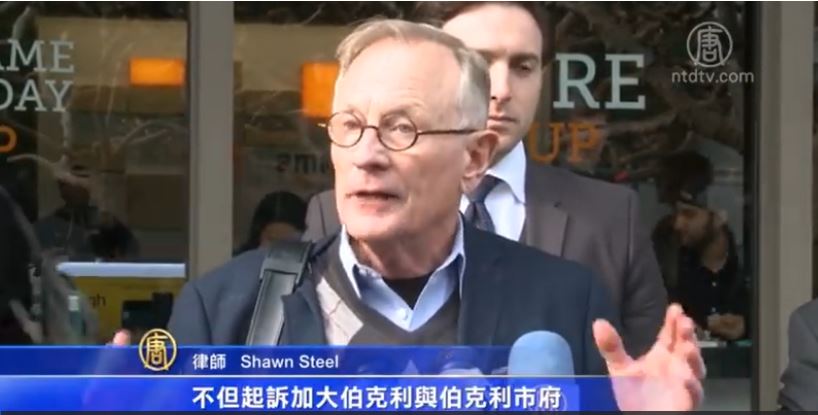
|
January 16, 2018
Press Conference
|
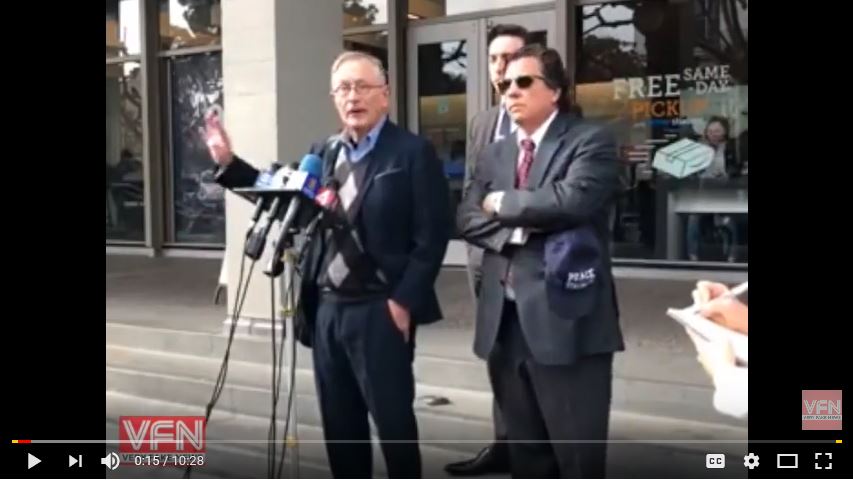
|
January 16, 2018
Press Conference
|

|
October 24, 2017
CNN Interview
|

|
October 18, 2017
CNN Interview
|
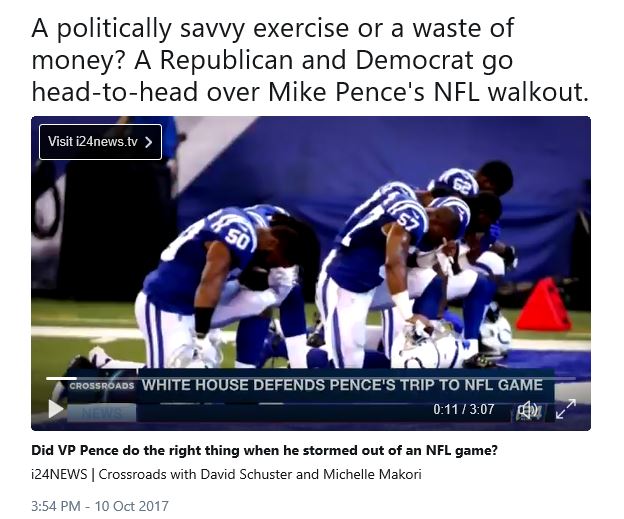
|
October 10, 2017
i24News Interview
|

|
October 6, 2017
The Epoch Times Interview
|
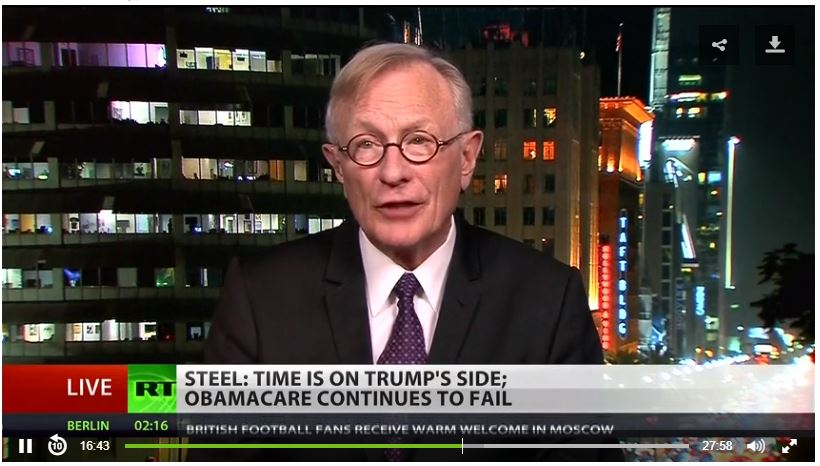
|
September 27, 2017
RT America Interview
|

|
September 26, 2017
NTD Interview
|
|
|
|
|
|
|
|

Weighing a second presidential bid,
Perry picks up pace on 2016 prep
December 05, 2014
By Patrick Svitek, Austin Bureau
As his 14 years in office come to a close, Gov. Rick Perry is dramatically stepping up his outreach to those who could influence a 2016 presidential campaign that he has insisted would be the antithesis of his ill-fated bid three years ago.
Angling for a head start in what could be a crowded field for his party’s nomination, Perry is hunkering down in Austin with hundreds of influential activists, potential donors and policy experts. The aggressive foundation-laying, which is kicking into high gear this month, marks one of Perry’s most organized efforts yet to prepare for the rigors of a presidential race that vexed him in 2011.
“You cannot jump into this race at the last minute like he did last time, and that’s a fundamental lesson that he learned,” said Henry Barbour, a longtime friend of Perry who is informally advising him. “He has to demonstrate to Republican voters and donors he’s up to the task.”
On Wednesday, Perry played coy in response to a recent report on his preparations for a potential 2016 presidential campaign.
“I talk with people on a fairly regular basis, as I have for the last 22 to 24 months,” Perry said during an unrelated news conference in Austin. “Sometimes it’s border security, sometimes it’s foreign policy, sometimes it’s monetary policy.”
In reality, the extent of Perry’s outreach is only growing, with the governor summoning more than 100 people to his mansion for two dinners this week alone. The guest lists included Barbour, Tennessee Lt. Gov. Ron Ramsey, Pittsburgh Steelers co-owner Larry Paul, Fort Worth mega-philanthropists Lee and Ramona Bass, San Diego real estate tycoon “Papa Doug” Manchester and Ian Brzezinski, who worked at the Pentagon under President George W. Bush.
The parade of VIPs is not just for show, according to people who have been meeting with Perry. To be competitive in 2016, they say he knows his preparations need to not only trump what he did three years ago, but also what his potential competitors are doing right now.
“I would say, based on our recent interactions, that he’s certainly in the higher tier, if not the top tier, of folks that are preparing for this, the presidential run,” said a senior Republican who has been in contact with several potential 2016 candidates.
Perry’s rationale for another shot at the White House has become boilerplate to those watching him in Austin. By his account, he was arrogant, reeling from back surgery and woefully under-prepared in 2011. If he passes on 2016, he tells audiences, it will not be because he has not done his homework.
Publicly, Perry has said he would make up his mind about running next spring. Those who have met with him recently say he seems genuinely on the fence about 2016, repeatedly volunteering that he still is thinking it through.
“It’s absolutely unclear from everything he told us whether he wants to run or not,” said Aparna Mathur, a resident scholar in economic policy studies at the American Enterprise Institute. “He was very explicit that he hasn’t decided.”
Mathur met with Perry on Tuesday morning in an office in downtown Austin, along with two other experts in income inequality, Scott Winship of the Manhattan Institute and Erin Currier of The Pew Charitable Trusts. Their discussion was not unlike many Perry has led - a few hours long, freewheeling and thorough, but informal. Afterward, Perry and the wonks walked over to the Governor’s Mansion for lunch with a broader group.
The discussion came a week after Perry hosted a similar session with seven health-care wonks including Avik Roy, senior fellow at the Manhattan Institute and Lanhee Chen of the Hoover Institution, who served as policy director of Mitt Romney’s 2012 presidential campaign. In the coming weeks, Perry is expected to hold more briefings on topics including energy, the environment, entitlement programs, education, the economy, immigration and financial services.
“They are extremely rigorous,” Roy said of the sessions he has been in. “It’s not in any way some kind of tutorial or index card kind of thing.”
Generally overseeing the outreach is Perry senior adviser Jeff Miller, a relatively new figure in the governor’s political orbit who has been credited with rehabilitating Perry’s post-2012 image.
On domestic policy, Dallas economist Abby McCloskey has been playing a key role in setting up briefings. McCloskey, who used to work for AEI, has consulted for Americans for Economic Freedom, the dark-money group that helps coordinate some of Perry’s trips outside Texas.
On foreign policy, Perry is tapping the expertise of conservative think tanks, as well as the John Hay Initiative, a nonprofit of foreign policy and national security experts founded by former advisers to Romney. Perry has been working for close to a year with the group, which is working with other potential 2016 presidential candidates.
Beyond the policy outreach, Perry’s team is making sure he maintains ties with activists in the early-voting states, where a number of old friends are keeping a finger on the pulse of the political climate. Mike Dennehy, Perry’s top liaison in New Hampshire, said a group from the state is heading to Austin later this month.
Also on the political front, Perry’s circle is continuing to move him toward tip-top shape to compete on the debate stage that offered him his most devastating blow in 2011, when he forgot the third federal agency he would eliminate as president.
Perry has had an ongoing contract with Podium Master, which has taught public speaking to GOP officials, including George W. Bush and Colin Powell. In one-on-one consultations with its clients, the group emphasizes 60 to 70 skills it says are crucial to effective communication.
“Every individual we work with has gaps in their knowledge, even people who have been at it for a long time,” said Podium Master co-founder Jeanette Henderson, who expects to next meet with Perry in January.
One of the goals, according to those who have been talking to him, is to hone a presidential style that does not always come naturally to governors, especially as they wade into global affairs. Perry has had the chance to put the training into practice with two trips this fall that saw him deliver foreign policy speeches in Japan and London.
For all the preparations Perry is making, even some of his strongest supporters acknowledge he still has to overcome deep skepticism lingering from his last bid, particularly among donors who likely will have plenty of other options to pick from next year. Nearly half a dozen Republicans with Texas roots are thinking about running.
Then there is the question of how Perry keeps his presidential buzz going once he leaves the Governor’s Mansion in January, giving up the platform that has put him front and center on issues such as the Ebola scare in Dallas and border security. Steve Deace, an influential radio host in Iowa, said the allure of Perry’s political comeback already has started to fade in the Hawkeye State, which he visited shortly after deploying the National Guard to the border in July.
“I get nobody talking about him at all now, whereas four months ago, everybody was talking about him,” Deace said, adding that Perry should take advantage of the bully pulpit while he still has it: “You’re the governor of freaking Texas. You better be like Jerry Jones in the Governor’s Mansion.”
Looming over these challenges is Perry’s pending indictment on abuse-of-power charges, a case his backers see as politically motivated but nonetheless challenging within the context of gearing up for 2016. One Republican familiar with the fundraising network in Texas said the charges have “put a freeze” on a number of fronts for Perry, including his ability to reconnect with donors.
Shawn Steel, a Republican national committeeman from California, rejected that idea, as well as the notion Texas donors’ pockets are not deep enough for so many White House hopefuls.
“There’s always going to be that, but he still is a 14-year governor and he’s created a lot of relationships and should prevail,” said Steel, who helped raise money for Perry’s 2012 campaign. “Texas is a big state. They should be able to afford to support several candidates all at the same time.”

GOP's tech hurdle: They don't always get it
2016 candidates want tech money but clash
with industry on policy.
November 29, 2014
By Tony Romm
Republican presidential prospects like Ted Cruz, Rand Paul and Marco Rubio have tapped the tech industry’s fat wallets and mined its big-data expertise — but these 2016 hopefuls couldn’t be further from Silicon Valley when it comes to policy.
A series of major divides — from the fate of net neutrality to the future of surveillance reform — still splits this trio of prominent pols from Internet giants in the country’s tech heartland, which helped catapult President Barack Obama to well-funded victories in 2008 and 2012.
Web companies, for example, are pressing the Federal Communications Commission for new rules that would require Internet providers to treat all online traffic equally. But Cruz, Paul and Rubio are anything but neutral on net neutrality — they hate it, much less any government regulation at all.
Republicans also have a rift with the tech industry over domestic spying. More than a year of work by tech leaders like Facebook and Google to curtail the National Security Agency’s surveillance authorities failed this month in part because Rubio joined Paul, usually a supporter, in voting against it. And tech executives who have clamored for more high-skilled workers have heard only criticism lately from most Republicans, who slammed Obama after he issued an executive order on immigration reform.
Even the GOP acknowledges it has plenty of work to do to woo Silicon Valley. “If you look historically at who people donate to, it’s really been 9 or 10 to 1, Democrat to Republican — we haven’t done as well,” said Paul, who has been working to set up a new West Coast outpost.
But the senator stressed the GOP still has plenty to offer, especially on tax issues that matter to tech titans’ bottom lines. “Republicans are actually going to try to do something to help the economy,” he said.
Technology companies represent some of the most successful firms in the country, and their executives form the ranks of the nation’s richest. That means there’s plenty of campaign cash for candidates to milk — and Democrats long have dominated that well. Beyond money, Democrats also have outpaced Republicans in attracting the sort of tech talent required to run modern, data-intensive campaigns.
Obama in his first presidential campaign formed powerful alliances at companies like Google, and his team by 2012 had set up an entire apparatus — Technology 4 Obama — to solicit donations from the likes of Salesforce.com CEO Marc Benioff and LinkedIn co-founder Reid Hoffman. Entering the 2014 midterms, Democrats again returned repeatedly to Silicon Valley and San Francisco for a series of high-dollar fundraisers. Yahoo CEO Marissa Mayer and Sam Altman, the leader of Y Combinator, for example, hosted the president earlier this year; so did Mark Pincus, who founded Zynga.
“We’re talking about some very deep pockets here,” said Larry Gerston, a professor focusing on U.S. public policy at San Jose State University. “They’re just figuring out that money can buy them things they never imagined.”
But, Gerston added, “For all their efforts, certainly, Republican tech types and folks close to the Republican Party haven’t managed well.”
The poor political odds have only spurred the GOP to action. Paul this summer began work to set up a technology hub of sorts in San Francisco — and the Kentucky senator returned there in October for a fundraiser alongside other prominent Senate Republicans. Cisco CEO John Chambers helped host the event at the Woodside, California, home of Oracle’s Larry Ellison. These tech hardware players — and others, like new Oracle co-CEO Safra Catz and HP CEO Meg Whitman, who unsuccessfully ran for governor in California — long have backed and funded Republican candidates.
“He’s hopeful it’s a libertarian incubator of future Ayn Rands,” said Shawn Steel, a past chairman of the California Republican Party, when asked about Paul’s strategy. But even Steel acknowledged that many Internet company executives are “deeply in the infrastructure of progressive Democrats.”
Rubio, meanwhile, has tried to align himself with businesses — speaking, for example, at Uber’s Beltway headquarters about the threat of government regulation to ride-sharing apps and other tech disrupters. The Florida senator has also spoken at Google’s Washington office about immigration, and he’s paid a visit to 1776, D.C.’s start-up incubator.
And Cruz has ported his firebrand conservative style to tech: The Texas Republican traveled this month down to a start-up hub in Austin, where he plopped a rotary telephone down on a podium in a heated diatribe against what he called the FCC’s archaic approach to the Internet.
Both senators declined to be interviewed for this story.
For all their efforts, though, there’s still a widening policy gap between national Republicans and the Internet giants they’re trying to court.
Companies like Facebook, Google, Yahoo and Yelp — through their Washington trade group, the Internet Association — are public backers of net neutrality. They together have praised Obama for endorsing an approach that might subject the Internet to utility-like regulation. All three Republicans, however, rejected the president’s suggestion. Rubio hammered it as “government regulation of the Internet” that “threatens to restrict Internet growth and increase costs on Internet users.” And Cruz lambasted net neutrality as “Obamacare for the Internet” in a tweet that went viral — and drew plenty of criticism.
A high-stakes vote over the future of the NSA further tested Republicans’ relationships in the Valley. Paul and others had supported a major overhaul of the agency’s authorities to collect Americans’ communications in bulk — but the senator shocked tech giants and civil-liberties groups when he pulled support at the last minute, as the so-called USA Freedom Act reached the Senate floor for a key procedural vote. Cruz did support the measure; Rubio long had stated his opposition, citing emerging terrorist threats and the need for more intelligence.
And for all the talk about the tech set’s need for more high-skilled workers, all three Republican stalwarts slammed Obama last week for acting on his own to advance immigration reform. Cruz and Paul previously voted against an immigration bill that tech companies had backed.
To hear Paul tell it, the party hasn’t hurt its standing among the tech crowd. He and others, for example, have backed high-skilled labor reforms in the past. The GOP senator also stressed that support for net neutrality is “not actually uniform throughout Silicon Valley.”
Paul further defended his vote on surveillance reform, stressing in an interview he “couldn’t vote for it because it reauthorized the PATRIOT Act” — a law he described as “heinous.” And in doing so, the senator appeared to take an indirect shot at his colleague, Rubio: Paul said the only gap between his party and tech companies might involve “Republicans who believe in vast and overwhelming government surveillance.” Without naming anyone, Paul continued: “I don’t think they have much in common at all.”
Republican insiders also assure that the party still has plenty to offer Silicon Valley, especially on business issues — like lowering the taxes that companies pay when they return profits from overseas.
“The parties have raised substantial resources [in the Valley], both parties have substantial allies, and both parties have been appreciated on some issues and less so on others,” said Bruce Mehlman, the leader of the Technology CEO Council and a former top tech adviser during the George W. Bush administration.
“Republicans have been better on tax; Republicans have [been] better on trade; Democrats have been better on research funding and STEM education,” Mehlman continued. “Both historically have been good on high-skilled immigration, but it’s stuck right now. … As a result, the tech industry has always been, and remains to be, a jump ball as a political constituency.”
For many Republicans, though, their biggest challenge might have nothing to do with tech policy — and everything to do with culture.
When national Republicans have opposed gay marriage, fought climate change and taken conservative stands on hot-button social issues — the topics that tend to resonate in California — they’ve created a divide with the very Valley tech executives they might be trying to attract. That schism in part prompted Google, Yahoo and Yelp to depart the conservative-leaning American Legislative Exchange Council earlier this year. The group, comprised of state legislators and top companies, had lobbied extensively against renewable-energy mandates.
A community of Web entrepreneurs have come to realize that if “it doesn’t fit with our employees, it doesn’t fit with our customers, it doesn’t fit with who we are,” Gerston said.

Carly Fiorina could shake up a crowded 2016 GOP field
May change race that lacks prominent women with possible bid
November 26, 2014
By Seth McLaughlinWith the 2016 GOP presidential race starting in earnest in the new year, there is a dearth of prominent women candidates. But a number of Republicans say that Carly Fiorina could change that. Mrs. Fiorina, the first woman to run a Fortune 50 company and 2010 Senate candidate, has made visits to the early caucus and primary states and left the definite impression she’s testing the waters for a potential dark-horse candidacy that could shake up the already crowded field. “It is clear to me she is kicking the tires,” said Jim Merrill, a GOP strategist in New Hampshire who served as a top adviser to Mitt Romney’s 2012 campaign. The former CEO of Hewlett-Packard has a slim electoral office record, amounting to the failed bid for California’s Senate seat in 2010 — a race she lost to Democratic incumbent Barbara Boxer by 10 percentage points. She also served in positions on Sen. John McCain’s 2008 presidential campaign and Mr. Romney’s 2012 campaign. But analysts said her business experience could make her a serious contender despite the relatively thin political resume. She would also stand out in what is now an all-male GOP field. “If she is the only woman in the race, I think that is going to give her some advantage, some strength there,” said Will Rogers, chairman of the Polk County Iowa GOP. “I think people also are going to look to her as a business leader, and there is a number of people in the Republican base that like that.” Mrs. Fiorina could not be reached for comment about her plans, but those familiar with her thinking said she is seriously considering a bid. She is scheduled to visit New Hampshire next month and to take part in a “Freedom Summit” in January being hosted by Citizens United and Iowa Republican Rep. Steve King.
If Mrs. Fiorina does run, it could put a finer point on the GOP’s problems wooing women voters, especially unmarried women, who have strongly favored Democrats in recent presidential cycles.
Strategists said having candidates such as Mrs. Fiorina, Sen. Kelly Ayotte of New Hampshire, and former Secretary of State Condoleezza Rice, as well as Govs. Susana Martinez of New Mexico and Nikki Haley of South Carolina run would be a good thing.
Some conservatives also hope that retiring Rep. Michelle Bachmann, Minnesota Republican, runs again and that former Alaska Gov. Sarah Palin, the 2008 vice presidential nominee, enters the fray.
Despite never being elected to public office, Mrs. Fiorina has been a regular in Republican circles since her high-profile ouster from Hewlett-Packard in 2006.
IOUs
Most recently, she established a super PAC, called Unlocking Potential, aimed at bolstering the GOP’s ground game and boosting women voter turnout in key battleground states such as Iowa, New Hampshire and Colorado ahead of the 2014 midterm elections. Along the way, she campaigned with gubernatorial and Senate candidates, and met with local kingmakers, including former New Hampshire Gov. John H. Sununu.
“She has created a lot of IOUs for herself,” said Shawn Steel, an RNC member from California.
The super PAC also has given the 60-year-old a platform to introduce herself to voters in key states, where she talks about her history as a cancer survivor and how her Christian faith helped her cope with the loss of a stepdaughter in 2009.
She also criticized what she calls the big-government policies of the Obama administration, which she blames for the sluggish economic and job growth, while rejecting the Democrats’ “war on women” attack line.
“We are not waging a war on women simply because we see no reason for birth control to be free. We respect all women, and we do not insult them as the Democratic Party does by assuming that women care only about reproductive rights,” Mrs. Fiorina said in a speech earlier this year at the Northeast Republican Conference in New Hampshire. “All issues are women issues. We are half of this great nation.”
Keith Appell, a GOP strategist, said Mrs. Fiorina would be a formidable presidential candidate because she is a good communicator with a message that plays well with lots of voters.
“The 2016 GOP field will be of a higher caliber than 2012 no matter who runs, but it only helps the Republicans if they have at least one high-quality woman in that field, and Carly would be at the top of that list,” he said.
Mr. Rogers and other Republicans said Mrs. Fiorina’s style could give her more staying power than Mrs. Bachmann or Mrs. Palin, who took a more aggressive approach to campaigning.
“Not aggressive in a bad way, but they tend to be more willing to lob grenades,” he said. “I think Carly Fiorina’s approach is rather than try to separate people, let’s get them together. If she makes it into a general [election], she is going to have a lot of broad appeal.”

The submerging Democratic majority
November 24, 2014
by Avik RoyIt’s been a well-established conceit of U.S. politics that the Republican Party is a bastion of white men while Democrats are the party of diversity. Precisely for that reason, the most interesting aspect of the GOP’s victories in 2014 was its candidates’ improved performance with ethnic minorities. In 2002, John Judis and Ruy Teixeira published “The Emerging Democratic Majority,” in which they cogently argued that “sometime in this decade” a new coalition of ethnic minorities, single women and college-educated professionals would emerge as a dominant electoral force on behalf of the Democratic Party. Each of these left-leaning groups was destined to grow in size, Judis and Teixera observed, suggesting that Democrats would enjoy a long-term structural advantage in future elections. “While the ranks of white working-class voters will not grow over the next decade,” they wrote, “the numbers of professionals, working, single and highly educated women and minorities will swell. They are products of a new postindustrial capitalism, rooted in diversity and social equality and emphasizing the production of ideas and services rather than goods.” The Judis-Teixeira thesis seemed to have been vindicated by the victories of Barack Obama in 2008 and 2012, with 2012 particularly notable because a poor economy should have made it easier for Obama’s Republican challenger, Mitt Romney. But the 2014 elections suggest that Republicans may be making inroads with these communities — especially with ethnic minorities — without diluting their policy message. If that’s true, the Obama coalition may erode when he leaves office. It’s this fear that drove the president last week to grant partial reprieves to nearly 5 million undocumented immigrants who hail predominantly from Latin America and Asia. It’s undeniable that, in recent years, the U.S. electorate has been whiter in midterm elections, such as 2010 and 2014, relative to presidential elections, such as 2008 and 2012. But not by much: Whites represented 75 percent of the electorate in 2014 and 74 percent in 2008. In the intervening six years, Republicans increased their performance among blacks by 6 percentage points (from 4 percent to 10 percent), among Hispanics by 5 points (from 31 percent to 36 percent) and among Asians by 15 points (from 35 percent to 50 percent). You could explain these differences in a number of ways. Perhaps Obama’s name at the top of the ticket drove minorities in his direction. Younger voters tend to vote Democratic, and more young voters have turned out in presidential years. But the effort by Republicans to reach out to minorities on their own terms can’t be dismissed. After the 2012 rout, the Republican National Committee published an “autopsy” detailing the GOP’s failure with minority voters. “The pervasive mentality of writing off blocks of states or demographic votes for the Republican Party must be completely forgotten,” the authors wrote, and the RNC committed to a full-time minority engagement operation. The GOP rebound with Asians is particularly striking. In 2012, Asians voted for Obama over Romney by a greater margin (47 points) than Hispanics did (44 points). In 2014, Republicans won among Asians, 50 percent to 49 percent, something they had not done since 1996. A 24-point swing in the Asian vote does not happen by accident. Republicans see Asian-Americans as natural conservatives whose family orientation and entrepreneurial tendencies line up with their own. “Direct personal engagement makes all the difference in the world,” says Shawn Steel, a former chairman of the Republican Party in California, where Asians represent 11 percent of the electorate, compared with 3 percent nationally. “Asian Americans … are the easiest [demographic] to move toward Republican quality candidates.” In Virginia, underdog Republican candidates such as Ed Gillespie and Barbara Comstock held events in Chinese, Vietnamese, Korean, Indian and Filipino communities. Comstock won her House race, and Gillespie far exceeded expectations in a close loss to incumbent Sen. Mark Warner. Why has it taken so long for Republicans to engage in direct voter outreach to Asians and other minority groups? Two reasons predominate. First, ethnic minorities, like most immigrants throughout history, are concentrated in urban areas, which tend to be Democratic strongholds, leaving few Republican politicians catering to minorities’ needs at the local level. Second, many conservative intellectuals believe they are resisting identity politics by refusing to tailor messages to ethnic minorities. But what conservatives call identity politics, operatives call retail politics. In 2004, Republican strategist Karl Rove saw that gun-owning Republicans were the best people to reach out to gun-owning independents. Minority outreach is no different. The great American tradition, conservatives reason, is for immigrants to assimilate into the broader American culture. What conservatives have long missed is that Asian and Hispanic immigrants are assimilating into the broader American culture, just as German and Italian and Irish immigrants did in the 19th and early 20th centuries. Judis and Teixeira were not the first analysts to argue that their side would achieve enduring majority status. The title of their book was adapted from one by Kevin Phillips, “The Emerging Republican Majority.” Philips, a strategist for President Richard Nixon, predicted that white Democrats would turn the then-solidly Democratic South into Republican territory. Democrats responded by turning the North blue. It’s Republicans’ turn to once again turn the tables.

Republicans make steady gains with Asian-Americans
November 22, 2014
Asian-Americans, the country’s fastest-growing minority group, are embracing the Grand Old Party. In the 2014 midterm elections, preliminary exit poll data showed nearly half of Asian-American voters backed the Republican candidate for House. That’s a remarkable 46-point swing in Asian support from 2012, when Asians voted by wide margins for President Obama’s re-election. Disbelieving pundits are questioning how a demographic group seemingly switched parties overnight.
Eye-popping exit poll data is the wrong metric for measuring long-term success. It puts the party back to its old and unsuccessful outreach habits of nominating minority candidates in long-shot districts and throwing up last-minute ads in another language. Republicans can’t hit home runs with Asian-American voters until we have a team of candidates ready to take the field. Republicans wisely shifted this cycle to building a bench. Across the country, more than three-dozen Asian-American Republican candidates won elections at the state and local level. The wins aren’t exactly high-profile — school board, state senate, city council — but over time, these victories will pay off big dividends to the Republican Party. “Republicans finally devoted some time, attention and resources to cultivating Asian voters,” Lanhee Chen, a research fellow at the Hoover Institution, noted in his post-election analysis. In American Samoa, Aumua Amata Radewagen, a member of the Republican National Committee, will become the territory’s first female representative to Congress. State Sen. Kimberly Yee, the first Asian-American elected to the Arizona legislature, cruised to re-election by 18 points. Even in Orange County, the last bastion of Republican power in California, the party backed four successful Asian-American women running for the state legislature and county board of supervisors. There’s a compound effect. “Once a community member is elected to a prominent position, it could inspire others with similar backgrounds to lead as well,” argues Tim Nguyen, chair of the Asian Pacific American Coalition. Newly elected California State Sen. Janet Nguyen, the highest-ranking Vietnamese-American in the country, can recruit candidates from Little Saigon to run as Republican candidates for school board and city council. Connecticut State Sen. Tony Hwang can raise money from the Taiwanese-American community that otherwise would never see its way to Republican coffers. San Diego City Council Chris Cate, the first Asian-American in half a century to be elected to the San Diego City Council, has the charisma to introduce GOP presidential candidates to Filipino-American voters in swing states, such as Nevada, Florida and Virginia. Any one of these rising stars is poised to win a conservative Republican primary for Congress. Take Oklahoma State Sen.-elect Ervin Yen, a first-generation Taiwanese-American immigrant, who is rock-solid on gun rights. “America was built by patriots who used guns to provide for their families, protect their homes and overthrow tyranny,” Mr. Yen, who immigrated to the United States after the Communist takeover of China, writes on his campaign website. “I am a strong believer that those principles are what still makes America great and that the Second Amendment must be defended from liberals who would take away our hard-won rights.” For the next two years, Republicans like Mr. Yen will be featured almost daily in Asian-language newspapers, sharing a conservative message with communities who have for too long been taken for granted by the Democrats. Republicans have elected a bench of bilingual stars who have real political power. And you can expect their influence to dramatically increase when the 2016 presidential candidates start calling. • Shawn Steel, a former chairman of the California Republican Party, is the state’s national committeeman on the Republican National Committee.

The Republican Rainbow Coalition Is Real
November 18, 2014
by Tim Mak

No, seriously. The Republicans now have more top-flight minority candidates than the Democrats. How did this happen?
Picture the first Democratic presidential debate next year: presumptive nominee Hillary Clinton, surrounded by a group of white men hoping to play spoiler.
Then picture the Republican presidential debate stage: two Hispanic Americans, Ted Cruz and Marco Rubio; an African American, Ben Carson; and an Indian American, Bobby Jindal. Add to that Jeb Bush, a Spanish-speaking former governor with a Mexican-born wife; and Rand Paul, a senator who has made appealing to black voters a central part of his political identity.
At its highest levels, the Republican Party is building a noticeably more diverse group of talent—call it the GOP’s Rainbow Coalition.
This didn’t happen by accident. While the Republican Party’s minority-outreach programs have been mocked in years past—often since they were so at odds with GOP policies that alienated black and Hispanic voters—in the wake of 2012 drubbing at the hands of Barack Obama, the party began a concerted effort to aggressively recruit black and Hispanic candidates.
Today, the Republicans can call upon an array of minority senators, governors, and congressmen. Black Sen. Tim Scott was elected to fill out Jim DeMint’s Senate term. Black Republican members-elect include Mia Love of Utah and Will Hurd of Texas. Minority governors Susana Martinez, Nikki Haley, and Brian Sandoval all won reelection. Along with Louisiana Gov. Bobby Jindal, that gives the GOP four people of color in charge of statehouses. The Democrats have just one, the governor-elect of Hawaii.
It’s a far cry from 2010 and the height of the Tea Party insurgency, when the GOP relied heavily on a single figure to speak to minorities: African-American Republican National Committee Chairman Michael Steele.
That’s because previous minority outreach in the Republican Party had been “nothing more than a cocktail party and a photo op,” Steele told The Daily Beast. Attitudes within the party were essentially unchanged; they just put new faces on an old, melanin-deprived product. Steele said that’s starting to change, at least a bit. “You now have a growing number of candidates and elected officials who can do that without having to fall into that trap.”
But so far, minority candidates aren’t translating into minority votes. Exit-polling data from the midterms show that Democrats won the support of 90 percent of black Americans, 63 percent of Hispanic Americans, and 49 percent of Asian Americans, even with midterm turnout that is favorable toward Republicans.
And in South Carolina, Sen. Scott received just 10 percent of the black vote.
“Do not misread this election to think that black folks are falling over themselves to support Republicans because we picked up a few black votes here and there,” Steele said. “it’s an opening, but it is not at all dispositive of success. There’s a lot more work to be done.”
The work began in earnest after Mitt Romney’s presidential campaign loss in 2012, when the GOP was faced with a choice. It could have doubled down on white candidates and white voters, or it could start reaching out to Latinos, Asian American and black voters—and recruited individuals who these voters could relate to.
In the post-2012 Republican autopsy report commissioned by the RNC, the authors stressed the need to be “actively engaging women and minorities” in their candidate recruitment efforts.
“We put an emphasis on recruiting candidates because we need to get younger, and we need to get more diverse,” RNC spokesman Jason Chung said.
At the time, those words were viewed as just diversity happy talk. But then something funny happened: The GOP actually began to recruit black and Hispanic candidates. When DeMint retired, just months after Romney’s loss, Gov. Haley turned to a popular congressman in the midst of just his second term, Tim Scott, to be his successor.
Utah’s Mia Love spoke at the 2012 Republican National Convention, before losing her House race that year by just 800 votes. The Republican-led legislature oversaw state redistricting just the year before—prompting charges of gerrymandering from state Democrats—but it wasn’t enough for her to eke out a win. When Democratic incumbent Rep. Jim Matheson opted not to run again, Love won by several thousand votes in the 2014 midterms.
And Asian-American Republican Michelle Park Steel won election this month as Orange County supervisor, a bright point in the party’s explicit efforts to elect minority candidates in the Golden State.
Her husband, Shawn Steel, a Republican National Committeeman and the former chairman of the California GOP, has been working on recruiting and promoting minority candidates for years.
“It’s quite subtle, but it’s becoming more clear every day,” Steel said. “We’ve got a young, diverse talent pool, and I’m looking very seriously at Sandoval or Susana Martinez as vice-presidential material.”
Thinking inside the conservative movement is also changing, slowly, on the topic of race. Not long ago, the concept of diversity was viewed as anti-meritocratic—even harmful. It was associated with government heavy-handedness and viewed with disdain. Now it’s viewed by a growing segment of conservatives as integral.
“In the Republican Party, when you heard the word diversity a few years ago, it meant affirmative action, quotas. That to this day is something that is unacceptable to most conservatives,” said Steel, the California GOP national committeeman. “Today, the meaning for Republicans has changed—[it means] an inclusion of people from different backgrounds.”
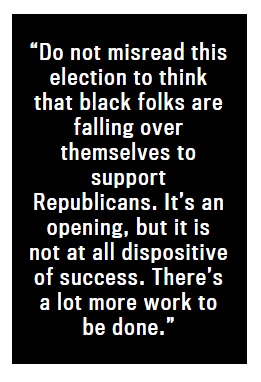 Republicans argue that they have a different spin on diversity, however. Sen. Ted Cruz, one of two Hispanic Republicans in the Senate, accused Democrats of “pigeonholing” minority candidates. Republicans argue that they have a different spin on diversity, however. Sen. Ted Cruz, one of two Hispanic Republicans in the Senate, accused Democrats of “pigeonholing” minority candidates.
“They have a very difficult time running statewide, where you have to appeal to more than one ethnic or racial slice—you’ve got to appeal to a big tent, and the Democratic Party has such an unfortunate history of pigeonholing candidates that it has proven very difficult for Hispanic candidates... to appeal statewide,” Cruz said.
Roland Martin, a prominent black newscaster and Daily Beast contributor, disagrees, saying minority Cabinet members aren’t typically governors—or even national politicians. And though Republicans are racking up minority leaders at the national level, it continues to face a fundamental obstacle.
“The GOP still has a basic problem: Its policies aren’t building a diverse electorate,” Martin said.
Both Republican policies and offensive statements made by some GOP politicians have had a hand in this. Immigration activists argue that the Republican Party is alienating Hispanic voters by not allowing comprehensive immigration reform to pass. And some House Republicans supported speeding up the deportations of Central American minors who arrived alone in the United States.
Sen. Rand Paul has also been frank in arguing that Republican efforts to restrict voting rights and toughen drug laws alienate minority voters.
Then there are the outrageous remarks. Take Rep. Steve King’s claim that for every undocumented immigrant valedictorian, there are 100 who have “calves the size of cantaloupes” due to drug smuggling across the border. House Speaker John Boehner condemned the remark, but the damage was done.
And there was broad Republican support for Nevada rancher Cliven Bundy over the issue of federal land-grazing rights, which quickly turned into backpedalling after the rancher wondered if black Americans would be better off as slaves.
Even when GOP minority candidates get elected, they get attacked for being less than genuinely black or Hispanic because of their political beliefs. Democrats argue that a real member of these groups wouldn’t represent a party that operated so totally against their interests.
Cruz, for one, has been the subject of such jabs. Former New Mexico Gov. Bill Richardson said that Cruz shouldn’t “be defined as a Hispanic.”
Cruz, who certainly considers himself Hispanic, had fighting words in response.
“I’m always amused at people who set themselves up as the arbiters of ethnicity. I would be amused to see if they would have had the same view when my father arrived in Austin, Texas, in 1957 at the age of 18, not speaking a word of English, having been imprisoned and tortured and coming here seeking the American dream,” Cruz said on Election Night.
Mere minutes later, Cruz delivered a speech at the victory party for Texas Governor-elect Greg Abbott, who won 44 percent of the Hispanic vote.
“One of the reasons I’m a Republican is that we treat people as individuals. When I ran for Senate, I didn’t run saying, ‘Vote for the Hispanic guy,’” he told The Daily Beast. “I ran saying, ‘Vote for a proven conservative’… who also happens to be the son of an immigrant who came from Cuba with nothing, not speaking English, seeking the American dream. And that’s the right relationship, I think.”

Bartlett and Steel Win Supervisor Seats
November 05, 2014
By NORBERTO SANTANA JR. Voice of OC
Orange County's Board of Supervisors will have two new women assuming leadership slots just as the last two female supervisors both move into the California State Senate.
In the second supervisorial district, representing several coastal communities like Newport Beach and Costa Mesa, Michelle Park Steel came out ahead of Republican State Assemblyman Alan Mansoor, garnering nearly 63 percent, or 52,842 votes.
Mansoor gathered 32,978 votes or 37.3 percent of the vote with 362 of 421 precincts reporting results into the early hours of Wednesday. In the fifth supervisorial district, representing most of South County, Dana Point Mayor Lisa Bartlett bested Laguna Niguel Mayor Mayor Robert Ming, earning 55.6 percent of early returns with 51,141 votes. Ming had earned 41,996 votes -- giving him 45 percent of the vote with 433 of 438 precincts reporting results. Steel – a termed out member of the State Board of Equalization - was out in front of Mansoor from the outset of the campaign, both in terms of fundraising and political endorsements. The Korean American candidate raised more than $758,766 in direct contributions, tapping into a statewide profile -- she serves on the California Republican Party Board of Directors and is married to former party chairman Shawn Steel. In addition to hundreds of donations from Korean American professionals and business owners, Steel’s contributors include: OC Business Council’s BIZPAC; Assoc. Builders and Contractors of Southern California; AT&T California Employee PAC; Building Industry of Southern California PAC; California Bankers Assn. PAC and the California Professional Firefighters PAC, to name some. Steel’s endorsements include District Attorney Tony Rackauckas; Sheriff Sandra Hutchens; Reps. Dana Rohrabacher and Darrell Issa; former state Assemblyman Curt Pringle; and Supervisors Shawn Nelson, Patricia Bates, Todd Spitzer and Janet Nguyen. Mansoor, who is a former Costa Mesa city councilman, highlighted a local twist to his endorsements, with backing from elected officials within his assembly district like Costa Mesa Mayor Jim Righeimer and Huntington Beach Mayor Matthew Harper. Mansoor’s fundraising was far behind Steel, raising $161,348 from local politicians, business interests and several health industry political action committees. His donors included: the National Federation of Independent Business; California Real Estate PAC; Philip Morris USA, California Beer and Beverage Distributors Community Affairs PAC; California Cable and Telecom Assn. PAC; Howard Jarvis Taxpayers Assoc. Small Contributor Committee; and more than $17,000 from state health industry PACs. Meanwhile, the fundraising battle for the fifth district was far closer with Bartlett and Ming raising nearly identical amounts. Ming's total as of Nov. 1 was $255,201, just ahead of Bartlett’s $246,922 in contributions. Ming’s contributors include the Family Action PAC; Los Angeles County Republican Leadership Voter Guide; and California Construction Trucking Assn. Bartlett’s contributors include the Dana Point Shipyard; Stop the Dock Tax Assn. PAC; and six companies or committees associated with the bail bond industry. Both candidates have received donations from construction, building and real estate political committees. Ming, who has been endorsed by the county Republican Party, edged ahead of Bartlett in the primary by just 2.5 percent.

CA GOP enlists Asian American candidates
October 13, 2014
The Republican Party is aware that it must grow or die. That includes the most Republican County in America, California’s Orange County. During the Reagan era, the OC was famous for turning out massive majorities for Reagan as Governor and later for President.
Since then, Republican registration has declined from 60% to less than 50%. Yet, the OC continues to grow economically with a huge Asian American infusion of successful small businesses and professionals. These new Americans tend to be well-educated and personally successful with good jobs. Most are new to the American political process.
Nearly 20% of residents in Orange County are Asian Americans. Yet, there is not a single Asian American elected to a partisan office. However, that is about to change.
Notably, the young and aggressive Neel Kashkari, the Republican nominee for governor, is running a guerilla campaign against the fossil, Gov. Jerry Brown. Neel depends for help on California’s 500,000-strong wealthy Indian American population.
Moreover, Orange County has four attractive candidates running for important political posts. All four of these candidates are Asian American women who immigrated legally and have spent years developing leadership skills in their local communities. All four are conservative. Their emergence as a new, serious political force toward changing the GOP stereotype.
Ling Ling Chang is the Mayor of Diamond Bar and a first generation Taiwanese-American. After winning a hard-fought primary campaign against a quality Republican candidate, another Taiwanese-American, Phillip Chang, Ling Ling emerged to face an unknown white male Democrat this November. This largely Republican “minority majority” Assembly district is about to elect its first female Taiwanese-American. If she is successfully re-elected, Ling Ling could hold office until 2026.
Young Kim worked as a District Representative for the popular Congressman Ed Royce (Chairman of the House Foreign Affairs Committee), serving the same communities in which she is now running. Her opponent, an obnoxious Democrat bully, Sharon Quirk-Silva, was a last-minute surprise win in 2012 during the Obama wave. $700,000 in union funds helped to defeat the Republican incumbent when few were paying attention. Democrats have not won in the City of Fullerton in perhaps more than 100 years. Republican leaders are intent on bringing this district back to the Republican caucus. The fact that 25% of the citizens are Asian Americans is a big plus for Kim. And, the fact that nearly 50% of those Asians are Korean Americans helps make Kim’s campaign, a national issue in the Korean American press.
Janet Nguyen is the central Orange County Supervisor, who replaced a Hispanic Supervisor 6 years ago. She now faces union candidate and ex-Assemblyman Jose Solorio. Pundits expect this race to cost over $12,000,000 including all the independent expenditures. That includes $8,000,000 from unions for Solorio and $4,000,000 for Janet. Conservatives understand that, in order to break the two-thirds super majority in the California Senate and return some balance to the State Legislature, this open seat race is crucial. Janet, who fled Vietnam when very young on a wooden boat, is charismatic and tough. She is engaging the huge Vietnamese community (about 20% of registered voters in the district) for a historic turnout. Janet currently represents the most Democratic part of the new California state senate seat of some 600,000 constituents.
Finally, my wife, Michelle Park Steel, is running for the Orange County Board of Supervisors. The district runs along the coast, including Newport Beach. Of the five supervisorial districts, this one has the fewest Asian Americans. Given her job as the top Republican in California, (she is the Vice Chair of the Board of Equalization, California’s tax authority), she is well known. Michelle currently represents an unbelievable 9,000,000 constituents — 25 percent of the California population, including all of Orange County. She is running against an unknown white male, and earned 47.7 percent of the vote in a four-way Primary.
Popular CRP State chairman and former Senate Republican Leader, Jim Brulte, is known for saying that “the candidate who most looks like, sounds like, and has the most shared experiences of the majority of voters tends to win.”
Brulte’s prediction may be proven this November. Should the four Asian women win, the Party’s image and look will immediately change for the better, demonstrating that the party is evolving and growing to fully incorporate California’s 12 percent Asian American population. This will restore Republicans as a serious political force in California.
Shawn Steel is California National Committeeman of the Republican National Committee.

Shawn Steel: Not your granddaddy's California GOP
September 18, 2014
This ain't your granddaddy's California Republican Party.
For two decades, California Republicans have watched our voter registration numbers dwindle with the state's changing demographics. Since the beginning of the decline, you've heard how this election will be different - how the party is finally serious about expanding our coalition beyond the 60 percent of white voters who always vote Republican.
Is there any reason to think 2014 will be any different?
(You mean besides Neel Kashkari, the party's Indian American, anti-poverty candidate for governor.)
In the heart of conservative Orange County, four Asian American women - all immigrants who've spent years involved in their community - are running in safe or competitive Republican districts. If the quartet runs the table, it will be the most dramatic demographic change in the party's elected leadership, and in the process, shatter conventional myths about the Grand Old Party.
Myth 1: Republicans can't win in majority-minority districts. This November, the traditional party roles are reversed in the 55th Assembly District. Diamond Bar Councilwoman Ling-Ling Chang, a first-generation Taiwanese-American, faces token opposition from a white male Democrat. Chang earned her spot in the runoff after a hard-fought primary battle with Walnut Valley Unified Trustee Phillip Chen, another Taiwanese-American Republican with a bright future. This seat is unique because it's the only safe Republican seat that is a majority-minority district. When Chang wins in November, it will mark an important victory in a district that consists of primarily minority voters.
Myth 2: Republicans can't win on social issues. In the neighboring 65th Assembly District, Korean-American Young Kim is trying to reclaim a seat Republicans lost two years ago. Kim, a small businesswoman and former aide to Rep. Ed Royce, had the highest vote percentage of any legislative challenger in the primary, beating Democrat Assemblywoman Sharon Quirk-Silva by nearly 10 points. Kim's victory also shows that the party doesn't have to sacrifice its conservative ideology to win votes. Her campaign has given equal weight to fiscal and social issues and made Quirk-Silva's support for the new transgender bathroom law a central issue in the race.
Myth 3: Republicans are anti-immigrant. At the local level, Republicans have always done well in Orange County's Little Saigon. This year, Orange County Supervisor Janet Nguyen is counting on the Vietnamese-American community to send her to Sacramento. Nguyen, who escaped the communist takeover on a small wooden boat in the South China Sea, will be a powerful spokeswoman for how the new California Republican Party embraces immigrants.
Myth 4: Nontraditional Republicans, especially women, can't raise money. Full disclosure: I'm married to the fourth Asian American woman that is changing the face of the California GOP. After eight years as Orange County's representative on the state tax board, my wife, Board of Equalization member Michelle Steel, is campaigning for a spot on the Orange County Board of Supervisors.
Of course, I'm biased in my assessment of the state's highest-ranking Republican official. So, I'll simply point to an objective metric: fundraising. Michelle has raised nearly three quarters of a million dollars for her supervisorial campaign, shattering the myth that female candidates can't raise money.
For too long, nontraditional Republican candidates have been relegated to quixotic campaigns in hopelessly gerrymandered districts. That's caused a vicious circle: fewer minority elected officials results in fewer minority candidates, and in turn, even fewer minority Republican voters.
These four remarkable women will end that cycle. As our state party chairman, Jim Brulte, routinely says, "The candidate who most looks like, sounds like and has the most shared experiences of the majority of voters tends to win."
This ain't your granddaddy's California Republican Party. Come November, your granddaddy won't be the only one voting Republican.
Shawn Steel, a former chairman of the California Republican Party, is the California national committeeman on the Republican National Committee.

Report from Chicago
August 18, 2014
 Last week, I returned from the RNC's Summer Meeting in Chicago. As your National Committeeman, I wanted to update you on our meetings and keep you abreast of what is happening nationally in our party. Last week, I returned from the RNC's Summer Meeting in Chicago. As your National Committeeman, I wanted to update you on our meetings and keep you abreast of what is happening nationally in our party.
Our RNC staff gave an update on our Victory 365 program and how we are working to engage voters across the country, in every community year-round. The RNC has raised $131.9 million for the 2014 cycle thus far and has $14.4 million cash on hand. We now have more than 90 percent of our political staff in the field -- no longer sitting in an office at headquarters. The RNC is investing heavily in digital and data capabilities and we are now able to provide voter scores to every state to help support our ground operations with more than 3 million voter contact attempts to date. In California alone, the RNC is financing 15 field workers and 6 political action centers. We have never had this level of support from the RNC before.
We also had the opportunity to meet rising GOP stars -- Will Hurd, Republican Nominee for Texas’ 23rd Congressional District; BJ Pak, Georgia State Representative; Amanda Pasdon, West Virginia House of Delegates; and Evelyn Sanguinetti, candidate for Lieutenant Governor of Illinois. These four individuals embody the GOP’s message of freedom and opportunity.
Good friend and fellow Californian, National Federated Republican Women President Kathleen Brugger (Rancho Cucamonga) hosted a special event for RNC members as well.
The RNC Standing Committee on Rules established the Standing Committee on Presidential Primary Debates, which is tasked with determining which GOP primary debates to sanction. There will be fewer debates, unlike the marathon 23 we had in 2012. And you will not see liberal hacks like George Stephanopoulos moderating -- the RNC will determine who moderates and make sure to control this process.
At the recommendation of the Site Selection Committee, of which I am a member, we voted to officially select Cleveland, Ohio to host the 2016 Republican National Convention. Cleveland is ready to show the country what they have to offer and the importance of this state to the 2016 presidential election cannot be overstated.
The RNC was honored to hear from Vice President Dick Cheney, Governor Scott Walker, Governor Mike Pence, Senator Mark Kirk, and Congressman Paul Ryan.
There are good things happening and I am confident that we are going to win control of the U.S. Senate in November and put a check on the out-of-control abuses of the Obama Administration.
We are poised to win and I look forward to being in the trenches with you for the next 74 days!
~ Shawn Steel

California’s party-switchers miss the vote
July 24, 2014
California politicians who’ve abandoned the Republican Party haven’t fared well in recent elections.
Even in a one-party state like California, voters don’t trust politicians who experience a convenient political conversion. At the state and local level, party-switching candidates have lost primary, general and special elections they might have won if they’d stuck with the GOP.
First up: the golden boy and would-be mayor of San Diego. As chairman of the California Republican Party in the early 2000s, I appointed Nathan Fletcher to serve as the state political director. A good-looking, charismatic Marine, Fletcher had his political career all mapped out. He started at the state party, served as an aide to a congressman, married an influential Bush staffer and eventually won a spot in the state Legislature.
Karl Rove, Pete Wilson, Meg Whitman and Mitt Romney all endorsed his 2012 campaign for mayor of San Diego. But the local party saw past the name-brand Republicans and endorsed a blunt-talking, pension-reforming city councilman. Without the local party’s support, Fletcher knew he couldn’t win, and so, in the middle of his campaign, he re-registered decline-to-state.
Within six months of taking office, San Diego’s sexual-harassing Democratic mayor resigned, and Fletcher was back again for the special election — this time losing as a Democrat. Turnout was identical in both races, with nearly a quarter million votes cast. Fletcher’s party-switching netted him 416 additional votes, a difference of nine hundredths of one percent. Had Fletcher stayed a Republican, his 2012 primary loss would have left him the party’s heir-apparent, a spot filled by now-Mayor Kevin Faulconer.
One hundred miles up the California coast, former NFL star and businessman Damon Dunn didn’t fare much better in his bid to be mayor of Long Beach. In 2010, Dunn received glowing profiles from national conservatives in his Republican campaign for secretary of state. The rising star, according to the conventional narrative, was helping Republicans appeal to African-American voters.
Three years after sharing his “inspirational story” with Sean Hannity, Dunn announced that he, too, had switched to decline-to-state, just before launching his campaign for mayor of Long Beach. This June, Dunn lost the mayor’s race by just 4 percent to Councilman Robert Garcia, who at least had the foresight to switch parties in 2009. Had Dunn remained a Republican, he’d have been able to brand Garcia as the unprincipled party-switcher in the low turnout mayoral race.
The most disappointing party-switch might be Dan Schnur’s failed campaign for secretary of state. A longtime Republican spin doctor, Schnur served as a spokesman for Republican Governor Pete Wilson and U.S. Senator John McCain’s 2000 presidential campaign. After a stint as chairman of the state’s political watchdog, he switched to decline-to-state.
In the June 3 primary for secretary of state, Schnur outraised his Republican opponent by a 10-1 margin. He received so much favorable press that a former Los Angeles Times political reporter dubbed him “the favored candidate of our state’s political media.” It resulted in a disappointing fourth-place finish, behind indicted Democratic state Sen. Leland Yee, who stands accused of bribery and weapons trafficking. Had Schnur remained a Republican, he’d have easily made the runoff and would be Republicans’ best opportunity for a statewide win, a role now filled by Pete Peterson.
Only one recent party-switcher has been victorious in California, and it’s the exception that proves the rule. Deputy District Attorney Carol Rose, a delegate to the 1996 Republican National Convention, conveniently became a Democrat one month before launching her judicial campaign in Los Angeles County. Only the Metropolitan News-Enterprise, a small legal publication, bothered reporting on Rose’s party switch. It also helped that her opponent was former Assemblyman Charles Calderon, whose brothers stand accused of public corruption and bribery.
To be sure, it’s never good to have rising stars leave a party. And that’s why California Republicans, too, must learn from the failures of the party-switchers. In each case, the party-switch was driven by political expedience and occurred before or during a campaign.
California Republicans are talking more about expanding our base and appealing to minority communities that have long been turned away from our party. If that outreach stops on Nov. 4, we’ll fare no better than the party switchers who missed the vote.
Steel, a former chairman of the California Republican Party, is the state’s representative on the Republican National Committee.
http://m.utsandiego.com/news/2014/Jul/24/californias-party-switchers-miss-the-vote/

Shawn Steel Thinks Tribal Politics Will Solve California Republican Party Woes
July 17, 2014
By R. Scott MoxleyNot just a few Republicans dismissively view the sight of Democrats' enthusiastic celebration of their party's internal groups: women, Hispanic, African-American, gay and lesbian, union members, seniors, Americans with disabilities, native Americans, Jews and Asians. Identity politics just hasn't been popular with Republicans, whose national conventions earned the reputation for being a gathering of crotchety, old white people anxious to return to the country club or golf course. But upbeat, old white dude Shawn Steel, an Orange County member of the Republican National Committee, argued in a Washington Times article this week that the GOP faces a dire choice given demographic shifts underscoring the rise of minority voting power: "adapt or die." Steel told Times reporter Seth McLaughlin, "California is a precursor of the dynamic change, demographicswise, in America. So this is a harbinger. This is a call in the dark night saying, 'Look, let's change.'" Orange County Republican Party chairman Scott Baugh stated similar worries in our January 2013 cover story: OC GOP's Apocalypse Now. Baugh focused primarily on improving the GOP's image with Hispanic voters by recruiting candidates from that community; prior related attempts largely produced horrible campaigns by warped characters. For Steel--husband to county supervisor candidate Michelle Steel, the mission is also to recruit "Republican Asians," who'll run for public office. This year, at least four other GOP Asians are running for various offices in Orange County: Ling-Ling Chang (state assembly), Young Kim (state assembly), Lisa Bartlett (supervisor) and Janet Nguyen (state senate). (In coming months, Susan Kang Schroeder could be appointed interim district attorney if Tony Rackauckas--currently 71 years old--prematurely retires during his upcoming, four-year term.) By stealing the "old tactic" of Democratic Party identity or "tribal" politics, the Republican Party will become more "robust," Shawn Steel told the Times. Steel is a smart, colorful fellow, but is his judgment always sound? The article notes a frightening factoid: He took Dana Rohrabacher--Orange County's senior, career politician known for mental instability, angry rants and food/booze stained bad ties--with him on his first date with Michelle.

Silicon Valley and the GOP: Republicans nurturing false hopes
January 20, 2014
As California Republicans plot our survival, there's a growing belief among state operatives that our success is tied to Silicon Valley. The wealthy, libertarian-minded tech entrepreneurs are a natural fit, this line of thinking goes, with a more socially moderate, fiscally conservative Republican Party.
There's just one problem: The Silicon Valley isn't aligned with right-of-center politics.
From Google's copyright infringements and censorship in China to the entire valley's collaboration with government spying, techies aren't the libertarian heroes of Ayn Rand's dreams. Nor are they free-market capitalists with the desire to fix Sacramento.
The Bay Area, one of the country's most liberal regions, has dropped Republican voter registration to third-party status behind decline-to-state voters. In 2012, the valley's two representatives in Congress each won re-election with more than 70 percent of the vote.
Democrats' dominance in the valley is so monolithic that Rep. Mike Honda, D-Silicon Valley, now faces an intra-party challenge from former Obama administration official Ro Khanna. A Republican could fail to make the general election.
"The press portrays a ruthless band of techno-libertarians taking over the city," David Auerbach, a New York-based writer and software engineer, writes at Slate.com. "The reality is much different."
Aside from a few high-profile Ron Paul bundlers, 80 percent of the valley's political contributions go to Democratic candidates. All but two of the tech executives recently invited to the White House backed President Barack Obama's reelection campaign.
"The tech moguls may be the first large capitalist constituency outside Hollywood to identify almost entirely with the progressives," argues author Joel Kotkin. Other authors point to a new philosophy of "peer progressivism" that is sweeping the valley.
These tech progressives embrace planned communities, where corporate institutions control every aspect of daily life. Employees at Facebook and Google hop on company buses to reach their corporate compounds. They can enjoy a gourmet meal and drop the kids off at daycare all by going to work, and without having to interact with the help.
Contrary to the myth, the Silicon Valley isn't full of individualistic free-market capitalists. Tech companies are largely building wealth from government contracts. This summer's revelations by government whistleblower Edward Snowden detail how the biggest tech companies, including Apple, Google, Facebook and Yahoo, cooperated with the NSA's Prism data collection program.
Even Peter Thiel, the archetype of the Ron Paul-loving techie, lines his pockets from big government surveillance. Thiel is the single largest shareholder in Palantir Technologies, a quasi-secretive data-mining company. Now valued at $9 billion, Palantir owes much of its profits to government contracts.
Google's policies in particular are incompatible with the Republican Party's values of individual freedom and property rights. Ask authors of the millions of books that the company has digitally copied without permission about Google's respect for intellectual property rights. Then again, some Google users can't even ask questions. Last week, Google stopped notifying users in China when they searched for censored terms, such as "Tiananmen Square in 1989" or "Falun Gong."
The "Do No Evil" search giant, which recently purchased robotics giant Boston Dynamics, has directly aligned its business plan with big government. One analyst predicts that the U.S. military is on track to become Google's biggest customer.
"In a sense, the tech companies are more like the NSA than they would like to think," writes Wired's Steven Levy. "Both have seized on the progress in computing, communications, and storage to advance their respective missions."
There's no question that California Republicans need to expand our coalition. But, as long as Republicans remain focused on the Silicon Valley mirage, we put off the hard work of build trusting with women, Latinos and Asian-Americans.
Shawn Steel, a former chairman of the California Republican Party, is the state's representative on the Republican National Committee. He wrote this for this newspaper.

Steel's Ironclad Argument for Legal Immigration Reform
January 18, 2014
California Republican Party National Committeeman Shawn Steel published the following article, "How About Amnesty for Legal Immigrants?" in the latest edition of Human Events, which addressed Washington D.C.'s push for immigration reform this year. Like many fair-minded reformers, who recognize the importance of immigration as well as the rule of law, Steel reminds his readers that there is another "undocumented" group of immigrants, i.e. those individuals who have sought naturalization status legally by submitting the proper reforms, passing all the necessary tests, paying the required fees, and completing all mandate interviews to achieve American citizenship, as opposed to demanding it as an entitlement. These people are still waiting for their finalized naturalization status, yet have not broken the law as they reside in the United States on provisional visas.
In reality, they are the only individuals one can justly call undocumented, for they are waiting patiently (all too long, in my opinion) to achieve full legal status in their adopted country. In his Human Event s piece, Steel relates the long struggle of his wife Michelle, born in Korea but raised and thriving in America, who followed all the steps to become a legal American citizen.
Michelle's story, along with millions of other legal residents earning American citizenship, are the stories that Americans need to be learning about. In addition to Ms. Steel’s rewarding pathway to prosperity as a legal resident, I have read about another Korean-American born deaf, who had to learn English and American Sign Language, who became a successful baker. I know an state assembly candidate whose wife emigrated from Costa Rica and waited ten years to become a US citizen.
Another friend of mine, born in the French protectorate of Tunisia, shared the frustrations which she had faced in order to receive her citizenship papers. But she did it legally. She also lamented that the students in her French class did not understand the struggles which legal residents willingly endured, and how a massive amnesty is a slap in the face to those naturalized American citizens. Another older gentleman whom I met in Torrance, from Eritrea, shared with me the outrageous stalling he had to put up with from the federal bureaucracy to receive his citizenship papers. But he was waiting, and he was present in this country on a legal visa while waiting.
Putting aside these personal accounts, however, consider the following statistics on legal immigration. 4.4 million people are waiting legally to enter. Those individuals are wondering why they are not receiving their own version of amnesty, since they played by the rules. And the usual wait time for legal immigrants, with all the rules and loopholes? An average of six to twenty years!
This country does need immigration reform, but for those who sought legal status. . .legally!
US Senator Rand Paul (R-Kentucky) chided his colleagues two years ago for lapsing on one sure-fire maneuver for legal immigration reform: the STEM Jobs Act, which would permit graduate students with training in Science, technology, engineering, and mathematics to receive a green card.
To this day, the STEM Jobs Act has not taken root, so to speak.
All of the current political wrangling and interest group pandering which is taking up space in Congress has ignored the legal immigrants and their stories, including Ms. Steel. They deserve respect and recognition for all that they have accomplished for this country, and that they sought to join legally.
Furthermore, I have delineated time and again (and again and once more this week) that free immigration to work is welcome, but not to welfare, and with the grandiose expansion of the welfare state under President Obama (including advertisements for American food stamps in Mexico) along with the failed rollout of Obamacare, the last thing that this country needs is a failed immigration reform which rewards thirty million people who broke the law, who can easily abuse, defraud, and certainly overwhelm the bloated and bankrupt American welfare state.
I am grateful for Mr. Steel's ironclad argument on behalf of the legal immigrants in our country, including the truly undocumented individuals who reside in this country legally, yet are still waiting an unjust length of time to receive their naturalization status.

How about amnesty for legal immigrants?
January 13, 2014
Billions of people would like to live in America.
At this moment some 4 million people are patiently following the rules, filling out the paperwork, paying the fees, and getting interviews in order to get their chance to immigrate to America legally.
These 4 million, however, have no interest group supporting their plight. Aliens who cut in line are depriving millions of other people of their dream. Most of those legal immigrants are people of color.
Not answered is a fundamental injustice.
What does “comprehensive immigration” mean?
Is there a single thought about accelerating the applications of the folks who are patiently and legally waiting in line?
My wife is Korean-American and immigrated here 35 years ago. It took her several years to go through the paperwork and get an interview in Asia for permission to enter the United States. When her mother earned her visa she immediately set up a new business to support themselves and paid Michelle’s out-of-state college tuition in cash. Not once did this family seek or want government welfare.
Other members of Michelle’s family had to wait over 10 years for permission to live in America.
Migrants who play legally tend to have superior education, enhanced cultural values and assimilate into the U.S. mainstream much more easily than illegal immigrants.
For example, most Asian-American immigrants presently enjoy higher education, better jobs, more intact families, less crime and longer marriages than the average native-born American.
Why is that?
One strong reason is that it takes a person with superior skills to go through the legal immigration process and by the time they get to America, they are ready to become successful. Very few of these immigrants wind up on street corners begging for tough jobs.
If Congress is to do anything “comprehensive” , it is clear that our legislators must consider national security and the rights of legal immigrants ahead of any such discussion about those who entered the
country illegally.
Until Congress addresses those two key issues, there can be no real comprehensive immigration reform.
|
Articles
2025
2024
2023
2022
2021
2020
2019
2018
2017
2016
2015
2014
2013
2012
2011
2010
2009
2008
2007
2006
2005
2004
2003
2002
2000
1998
1996
|